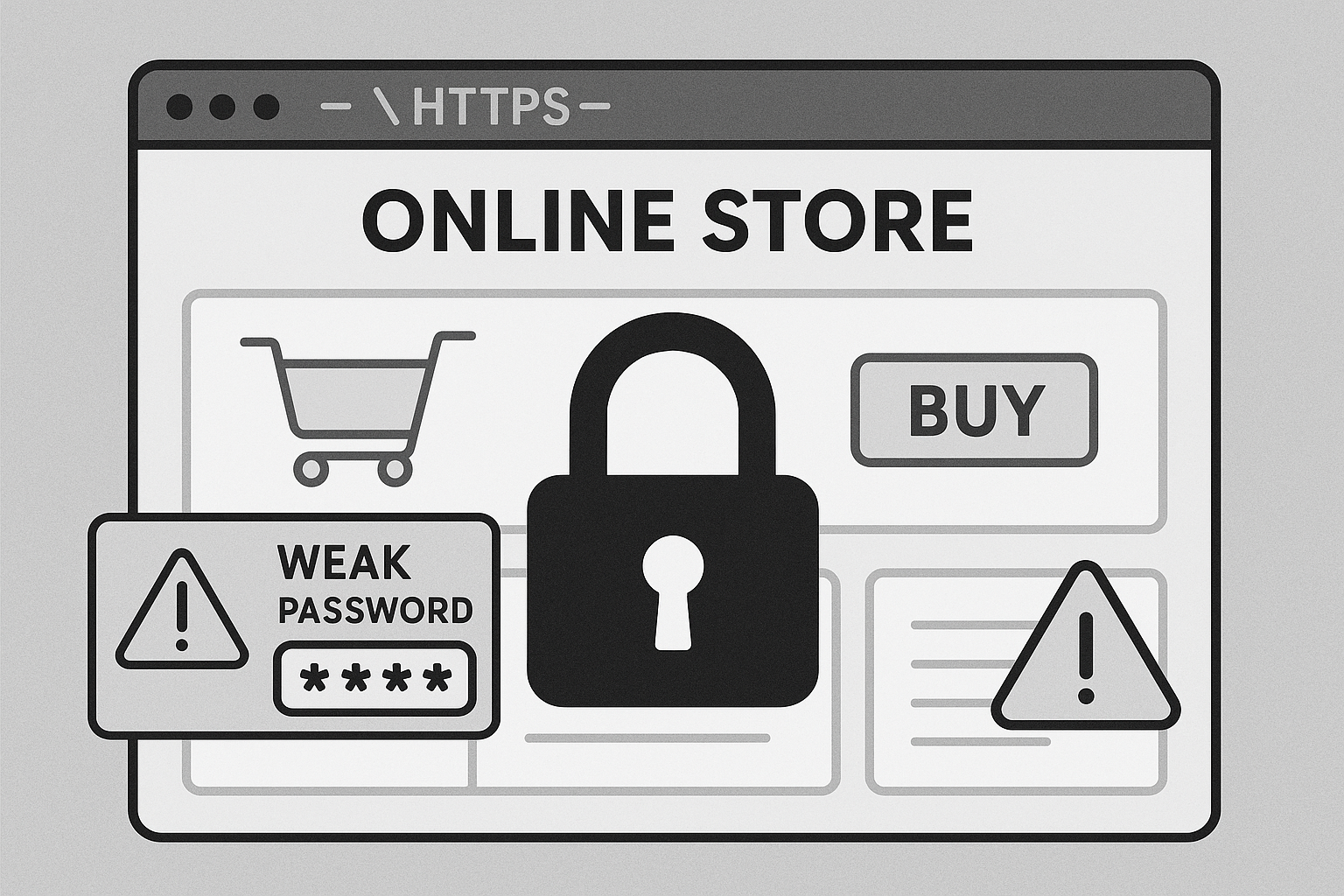
Introduction
Having a secure online store is essential to protect both your customers' data and the reputation of your business. However, many entrepreneurs make mistakes that can jeopardize the security of their online store and lead to the loss of customers, sensitive information or even a cyber attack. These mistakes can range from weak passwords to lack of HTTPS encryption.
In this article, we will explore the most common security mistakes that put your online store at risk and how you can avoid them. With a better understanding of these flaws, you will be able to implement security best practices and ensure that your website is protected and trusted by users.
.
Table of Contents
1. Not using HTTPS in your online store
What it is: The HTTPS protocol is a secure version of HTTP, which encrypts communication between the client browser and your server. The "S" in HTTPS stands for security.
Why it's a mistake: If your online store does not use HTTPS, sensitive customer data, such as credit card numbers and addresses, can be intercepted by cybercriminals.
Impact: The lack of HTTPS can make customers not trust your store and abandon their purchase. In addition, Google penalizes sites without HTTPS in its search results.
Solution: Make sure your store has an SSL certificate to ensure that all traffic is securely encrypted.
2. Use weak passwords
What it is: Weak passwords are easy to guess or crack through brute force attacks.
Why it's a mistake: Weak passwords, such as "123456" or "password", are vulnerable to being hacked, which could compromise both your website and customer accounts.
Impact: If attackers gain access to your administration panel or database, they can steal sensitive information or even modify your products and prices.
Solution: Use strong passwords with a combination of uppercase letters, lowercase letters, numbers and special characters. Enabling two-factor authentication (2FA) is also an excellent security measure.
Failure to perform regular backups
What it is: Backups are copies of your important data, such as products, customers and transactions.
Why it's a mistake: If you do not make backups, you could lose all your information in the event of a cyber attack or system failure.
Impact: Data loss can result in serious disruptions in your store, affecting the operation and causing the loss of customers.
Solution: Implement a system of automatic backups and store them in a safe place. Make sure backups are easily accessible and up-to-date.
To learn more about how to ensure the security of your data through backups, we invite you to read our article on the importance of backups on your website.
4. Not regularly updating your store's software
What it is: Regularly update your online store software including the e-commerce platform, plugins and applications you use.
Why it's a mistake: Software updates usually include security patches that fix vulnerabilities. Failure to update your system can leave your store exposed to known attacks.
Impact: If a cybercriminal exploits a vulnerability in outdated software, they can gain access to your website or customer database.
Solution: Establish a regular maintenance plan to ensure that your store and all its components are always up to date.
5. Failure to protect customer data adequately
What it is: Customer data, such as names, addresses, credit card numbers, must be adequately protected with encryption measures and restricted access.
Why it's a mistake: If you do not protect your customers' data properly, you could be violating privacy laws, such as the Personal Data Protection Law in Colombia.
Impact: Data theft could not only damage your reputation, but also cause you legal problems and financial penalties.
Solution: Implement data protection policies, such as encryption of confidential information, and ensure compliance with all applicable privacy laws.
6. Not using a fraud detection system
What it is: Fraud detection systems monitor transactions in your online store for suspicious behavior, such as multiple purchases from the same IP or unusual transactions.
Why it's a mistake: If you don't have a system that helps you identify fraud in real time, you could fall victim to fraudulent transactions that affect your income.
Impact: Online fraud can result in financial losses and also jeopardize your customers' trust in your online store.
Solution: Implement fraud detection tools that can identify suspicious buying patterns and alert you to potential fraud before it occurs.
Are you ready to protect your online store and keep it secure? Implement these security practices today and ensure your customers' trust. ClickPanda offers web security solutions to keep your store protected against any threat.
Conclusion:
Online store security is non-negotiable. Security mistakes can have serious consequences for your business, from data loss to customer distrust. By following security best practices, such as implementing HTTPS, using strong passwords and keeping your software up to date, you can protect your store from potential cyber threats. Make sure your online store is secure and reliable to grow your business successfully.








